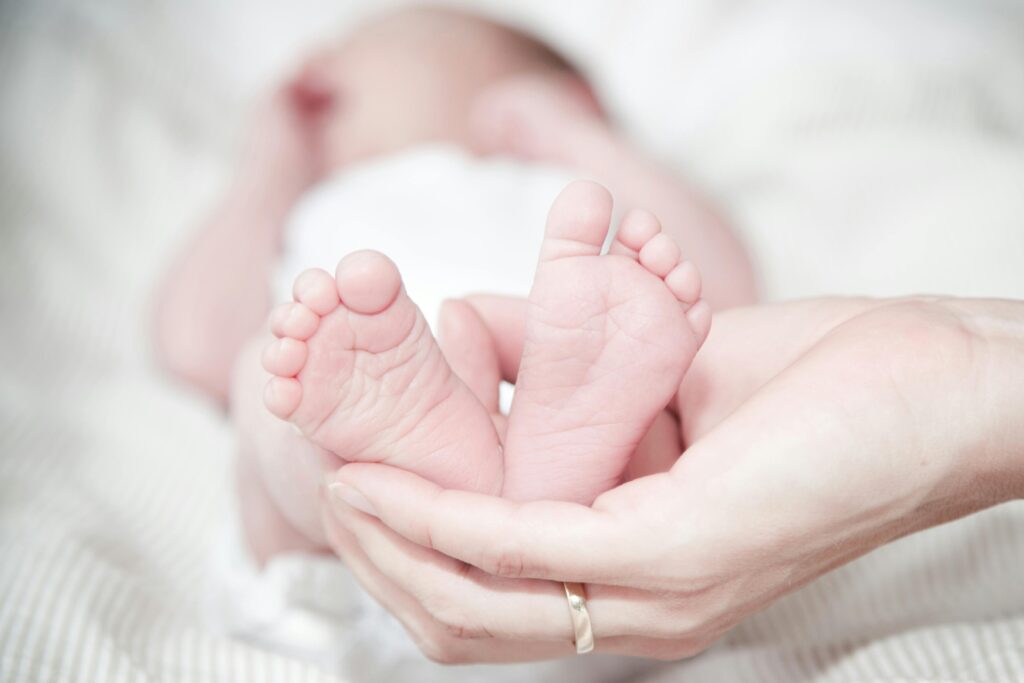A new study has identified that NHS infant checks can miss serious hip abnormalities in new-born babies. Left undetected, these can require complex surgery, and lead to early arthritis.

The study, published by the JAMA Network, was led by researchers at the University of Liverpool in collaboration with the University of Oxford and University of Leeds, and supported by the NIHR Oxford Biomedical Research Centre.
It shows that the tests currently used by doctors can be unreliable. Using data on 27,000 babies, their research found the best tests miss over half of abnormal hips – and indicates that for every 1,000 hips screened, four dislocations will be identified, but five will be missed.
Developmental dysplasia of the hip (DDH) is a condition where the “ball and socket” joint of the hip does not properly form in babies and young children. DDH is one of the most common musculoskeletal conditions in infants and around one in every 100 babies is born with the ball of the hip bone dislocated from the socket.
If a dislocated hip is diagnosed early, it can usually be treated with a removable brace that the baby wears over their clothes for a couple of months. However, delayed diagnosis often requires complex surgery, and can lead to early arthritis, requiring a hip replacement when the children become young adults.
The NHS baby hip screening checks involve several clinical tests, performed within 72 hours of birth and again between six and eight weeks. However, researchers highlight there has been some doubt concerning the reliability of these tests, so the study set out to evaluate the diagnostic accuracy of clinical examination in identifying dislocated hips in infants.
Professor Daniel Perry, NIHR Professor at the University of Liverpool and a orthopaedic surgeon at Alder Hey Children’s Hospital said: “Doctors have known for some time that there are challenges with the newborn hip examination and this study confirms the problem. What brings additional concern is that all hip examinations in this study were conducted by experts in hip disease – which is not usually the case in the NHS – so the true problem may be bigger. Nevertheless, we’re determined to make things better.
“NHS England has recently started working with the National Institute for Health and Care Research (NIHR) to begin research to improve hip screening amongst babies. Just last week NHS England launched a change in the hip screening pathway for babies, which will enable the UK to be world leaders in research in this area. We hope that this could soon mean new tests on the hips of babies, such as artificial intelligence-enabled ultrasound. It’s heartening to see a new collaboration between NHS England and NIHR which I hope will translate into better care for children and young people.”
The study pooled data from 27,175 infants examined between 1992 to 2021 in screening programmes. Statistical models were used to calculate the sensitivity, specificity and likelihood ratios of different examination manoeuvres in identifying a dislocated hip in infants aged three months or younger.
While useful in some children, researchers identified that the clinical examination missed more dislocated hips than it was able to identify. The only part of the test that the authors identified to be useful is called the ‘Barlow/Ortolani manoeuvre’. The authors concluded that other parts of the test, including limited hip abduction and a clicking sound had no clear diagnostic utility.
Dr Abhinav Singh, Orthopaedic Surgeon and Researcher at the University of Oxford, said: “It is important that doctors are well trained in the hip examination and know which tests can help identify hip abnormalities. However, our findings clearly highlight that examining babies’ hips will not identify all dislocations. Emphasising certain examination manoeuvres that can assist in early diagnosis of DDH is of clear benefit to infants, their families and the clinician, but our results also provide evidence of the fallibility of the examination.”